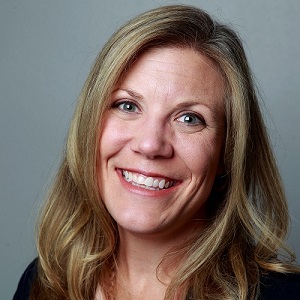Erin Richards, Journalism

ERIN RICHARDS is a national education reporter for USA Today who lives a dual life as a hunter/jumper enthusiast. Based in Milwaukee, Wisconsin, Richards has spent her career building bridges between the niche world of equine sports and the mainstream media. As a news reporter and editor for more than a decade at the Milwaukee Journal Sentinel, Richards regularly brought equine-related features into the daily line-up. Meanwhile, her authoritative reporting on the complex world of American schooling, which often features narrative and explanatory elements, has won state and national awards. Richards started as a freelance writer for the Chronicle of the Horse and US Equestrian magazines while training horses at her family’s former stable outside of St. Louis, Missouri. Her zest for all things equine led her to study abroad at one of England’s top riding colleges, where she practiced dressage and eventing and worked in a breeding barn. She’s tried everything from polo in Argentina to horse camping, vaulting, cowboy mounted shooting and gymkhana in the Midwest. Egg-and-spoon remains her best event.
Richards presents four sessions at the 2019 AHP Equine Media Conference.
Friday, May 31 – 9:30 a.m. to 10:30 a.m.
Crossing Over: How to Take Your Specialty Stories to a Larger Audience
Of course readers of equine media love your stories, but many of those pieces could have a home in more mainstream publications – if you know how to get them there. This session will help you identify and develop stories with “cross-over” ability and offer tips on developing a process to get more non-equine publications to consider industry-related content. We’ll examine how to broaden the reporting, pitching and editing processes to give writers lots of options. For editors and producers, we’ll discuss how to extract elements of the stories you’re working on to market the pieces to a larger audience on social media and beyond.
Friday, May 31 – 11:00 a.m. to 12:00 p.m.
So You Want to Write a Series: Tips for Developing Longer-Term Projects
Developing content around a theme, or a series of stories to run over time, can be a great way to keep readers engaged. This session for editors and content producers will discuss how to think big about themes that resonate, and how to organize a step-by-step process to bring projects to fruition. We’ll take a deep dive into how daily news publications develop projects, from conception to planning, reporting to revising, to polishing and producing. We’ll talk about how to make plans for including everything from videos, photos, graphs and slideshows to live events. Reporters will glean ideas about how to develop themed content in their work, or how to carve out an area of expertise that will produce a flow of stories over time.
Saturday, June 1 – 9:30 a.m. to 10:30 a.m.
Headlines! They Aren’t Just for Editors Anymore
(Note: This is a zoomed-in version of the May pre-conference webinar, Look At Me: 7 Tips To Make Your Work Stand Out On Social, and focuses on the critical skill of headline writing in an age of social media).
The Onion was ahead of us all. In an age of social media ruled by short attention spans, a headline can quickly determine whether a story gains an audience – and the valuable clicks that lead to advertising dollars that help us all stay afloat. You’ll learn how to use headline-writing as an organizational tool for your stories. Editors will gain practical tips for creating more conversational headlines. We’ll look at examples of good and bad headlines from daily news outlets and talk about how to improve the bad ones. We’ll also discuss how to use SEO tools to identify key words to make your headlines pop.
Saturday, June 1 – 11:00 a.m. to 12:00 p.m.
Bringing Sources to Life: How to Craft Great Interviews
The interview is at the heart of great journalism, and improving your interviewing skills can lead to not only better stories, but more stories, and ones with better quotes and character development. We’ll discuss how to better prepare for interviews, how to craft good questions and how to develop anecdotes and scenes when you’re not talking to someone in person or witnessing them in their natural habitat. We’ll also talk about the care and feeding of sources over time, as those are some of the best people to lead you to good stories down the road.
